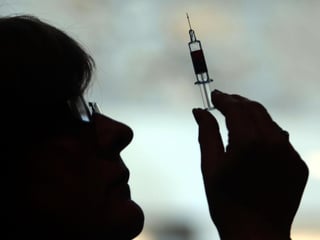Covid: Why tackling racial and social inequalities is vital amid efforts to combat the virus – Dr Gwenetta Curry


Perhaps these topics have captured the public eye because we know the consequences lead to death. However, racism also kills in other, more subtle ways.
Access to healthy dietary choices is the most basic human right but has been denied to many across the country.
Advertisement
Hide AdAdvertisement
Hide AdAs we continue to focus on the impact of Covid-19 on vulnerable populations, we must not ignore the effect that hunger has on people’s quality of life.
Living in deprived areas is linked to higher rates of infections. The virus has had a major impact on people’s ability to work and maintain jobs to provide for their families.
According to the Office for National Statistics, the unemployment rate for August to October was four per cent, which is an increase of 0.7 per cent over the previous three months. This equates to 1.69 million people in England and Wales being unemployed.
Scotland on the other hand has seen an increase in employment but this has been attributed to the government funding schemes.
Racial and ethnic minorities are over-represented in the most deprived areas and have been disproportionately impacted by job loss. According to Public Health England, Black, Asian, and Minority Ethnic (BAME) groups were significantly more likely to have their hours reduced (13 per cent) compared to the nationally representative sample (nine per cent).
As we go into the holiday season, we need to acknowledge the disproportionate number of families who are struggling to feed themselves and their children. The holidays are times when many families would gather with their extended family and pool their resources but due to the impending threat of Covid-19, this will be impossible this year.
Food insecurity, defined as the interruption of food intake or eating patterns because of a lack of money and other resources, is one of the major areas largely overlooked during the pandemic.
According to the Food Foundation, there has been a major increase in the number of families who are having to depend on food banks during this time. While hunger, like inequalities, is not a new phenomenon in the UK, Covid-19 has increased the number of people who are suffering.
Advertisement
Hide AdAdvertisement
Hide AdData from Scotland’s independent food banks showed a 113 per cent increase in emergency food distribution from February to July 2020. The most selected reason for food bank use was due to current benefits being insufficient to afford food. So, while Scotland’s employment rate has risen there is still a gap that leaves families suffering from hunger.
Hunger has a lasting impact on the overall health of the population as well as their ability to perform within society. Recent articles highlight the sharp increase in the number of children coming to school in Scotland without having eaten breakfast.
Hunger and malnutrition can lead to developmental impairments in language, motor skills, and behaviour. Researchers have found “higher odds of chronic conditions and of asthma were observed among youth who experienced multiple episodes of hunger compared to those who were never hungry”. As we continue to combat Covid-19, we must remain vigilant in reducing all forms of social and racial inequalities.
Dr Gwenetta Curry is an Edinburgh University lecturer on race, ethnicity and health
A message from the Editor:
Thank you for reading this article. We're more reliant on your support than ever as the shift in consumer habits brought about by coronavirus impacts our advertisers.
If you haven't already, please consider supporting our trusted, fact-checked journalism by taking out a digital subscription.
Comments
Want to join the conversation? Please or to comment on this article.
